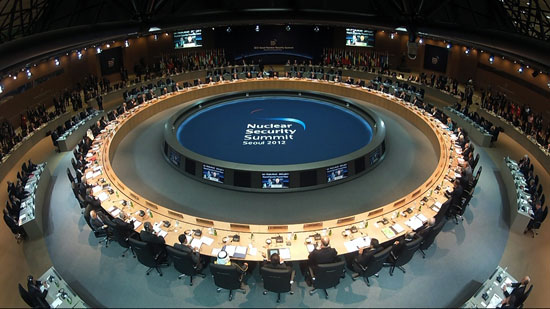Communique calls for tighter nuclear security measures
 0 Comment(s)
0 Comment(s) Print
Print E-mail China.org.cn, March 27, 2012
E-mail China.org.cn, March 27, 2012
The Nuclear Security Summit ended in Seoul on Tuesday with a communique calling for tighter measures to?protect vulnerable nuclear materials from falling into the wrong hands.
|
|
|
The 2012 Nuclear Security Summit officially kicked off on March 27 in Seoul. [Xinhua] |
Calling nuclear terrorism "one of the most challenging threats to international security," the leaders pledged to "work toward strengthening nuclear security, reducing the threat of nuclear terrorism, and preventing terrorists, criminals, or other unauthorized actors from acquiring nuclear materials."
Notable additions included calls on states to approve domestically the 2005 amendments to the Convention for the Physical Protection of Nuclear Materials (CPPNM) so they can be brought into force by 2014.
The CPPNM, originally signed in 1980, is the only international legally binding convention in physical protection of nuclear materials. The amendments can take force with an approval from two- thirds of the member states.
Building upon the Washington communique, the six-page Seoul communique also encouraged states to announce voluntary actions aimed at minimizing the civilian use of highly-enriched uranium by 2013 and promote the use of low-enriched uranium instead.
Leaders in the Seoul gathering urged nuclear security measures that go hand in hand with nuclear safety measures "in a coherent and synergistic manner," reflecting international concerns over safety of atomic power plants following the tsunami-triggered nuclear crisis in Japan.
(Xinhua contributed to the story)






